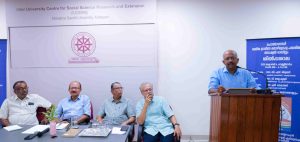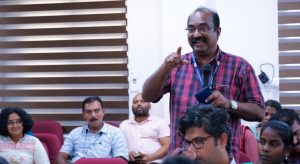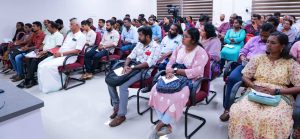
The success of the Mahatma Gandhi National Rural Employment Guarantee Scheme (MGNREGS) depends on the extent to which all stakeholders of the scheme ensure transparency, accountability, and justice through instruments like social audit, according to the workshop concluded in Mahatma Gandhi University. The workshop, organized by the Inter University Centre for Social Science Research and Extension (IUCSSRE), also pointed out that the eventual accomplishment of the scheme is contingent upon the confidence and trust that exists between the local government representatives, officials, and the social audit team. Dr. B.S. Thirumeni, Chairman, Appellate Authority (Ombudsman) MGNREGS, who inaugurated the workshop, said that in order for the scheme to be meaningful and democratic, all stakeholders must acknowledge the ‘right to work’ as fundamental in the making of the NREGS. Those who are now implementing the scheme should also be aware of the various provisions in the law passed by parliament. Unfortunately, due to the lack of awareness of the provisions of the MGNREG Act, many social evils such as corruption and nepotism permeate the scheme, which will eventually undermine the very legislation, Dr Thirumeni added.
According to Dr. N. Ramakantan, the head of the Social

Audit Unit, although Kerala has been a model state in effectively conducting social audits under NREGS, the active participation of Gram Sabhas in the process has not been satisfactory. Despite the conduct of over 15,000 Gram Sabhas in 2022-23, the participation of all categories of people in Gram Sabhas has not been ensured. If Gram Sabhas do not represent various sections of the population, the social audit may remain a mere technical process. To ensure a significant impact, Gram Sabhas must play a crucial role and move forward qualitatively, Dr. Ramakantan pointed out. Experts and those involved in NREGA-Social Audit provided insights and feedback regarding the potential and limits of the audit. A select group of LSG personnel and representatives from different Blocks and Grama Panchayats from Kottayam participated. Dr. V. Mathew Kurian, Joint Director, KN Raj School of Economics, Sri M.S. Vasu, and Sri MK Dileep moderated different sessions. Dr. K.M. Seethi, Director, IUCSSRE welcomed and Mrs Nitha Nair proposed vote of thanks.

